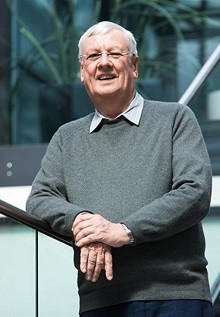The full program for the registered participants is HERE
Guest Keynote Speakers

- Professor Peter Buckley from the Alliance Manchester Business School, the UK, is an honorary Doctor at LUT University. He has published over 250 refereed articles and 28 books plus edited 20 more that have over 49,300 Google citations (h-index 90). He was awarded the JIBS Platinum Medal for Scholarship as the most frequent contributor during the first 50 years of the journal (2019), and the British Academy of Management Medal for Research, 2021.

- Professor David Audretsch is a Distinguished Professor and Ameritech Chair of Economic Development at Indiana University, the US, where he also serves as Director of the Institute for Development Strategies. Audretsch's research has focused on the links between entrepreneurship, government policy, innovation, economic development and global competitiveness. He is co-author of The Seven Secrets of Germany, published by Oxford University Press and the founder and Editor-in-Chief of Small Business Economics: An Entrepreneurship Journal. Audretsch has consulted with numerous international organizations, including the World Bank, OECD, the European Union and the United Nations.
Keynote speakers serving as LUT Visiting Professors




Industry Panel Speakers
Raimo Voipio is a Vice Chairman of the Board at Vaisala Oyj.

Krista Kinnunen is the CEO of Zoy Oy and Soundlocket.

